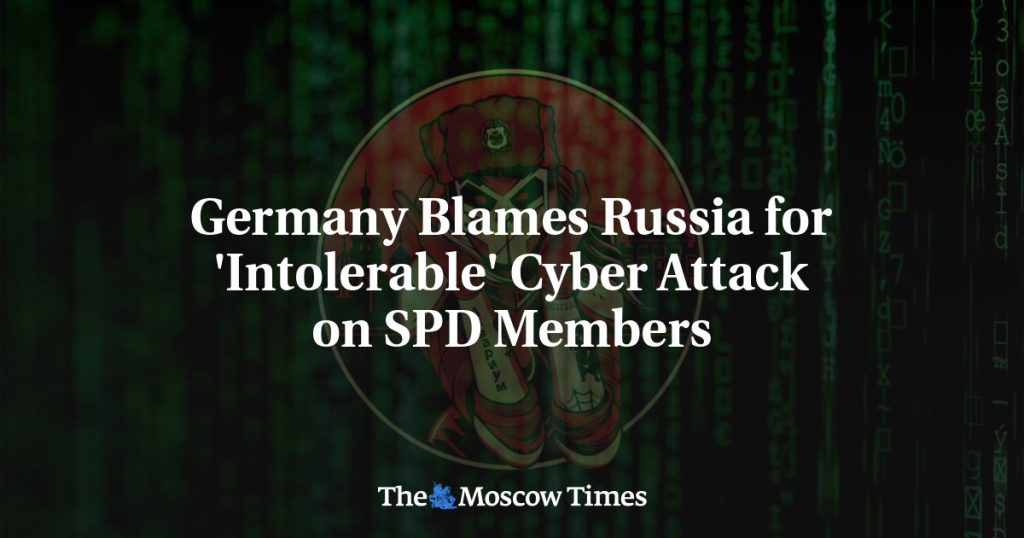Germany recently revealed that Russian state-sponsored hackers were responsible for a cyber attack on members of the Social Democratic Party in 2023, with Foreign Minister Annalena Baerbock warning of consequences for such actions. Following a federal government investigation, the cyber attack was attributed to a group known as APT28, also called Fancy Bear, which is controlled by Russia’s military intelligence service. The attack was termed “intolerable” and “unacceptable” by Baerbock, who did not provide further details on the incident. APT28 has been involved in numerous cyber attacks globally.
Last year, the European Union’s cyber security response unit CERT-EU reported that an SPD executive had been targeted in a cyber attack in January 2023, potentially leading to data exposure. There were indications that the attack originated from Russia, contributing to concerns about state-sponsored cyber activity. After meeting with Australian Foreign Minister Penny Wong in Adelaide, South Australia, Baerbock spoke out against the cyber activity, indicating that Australia shared Germany’s concerns. Wong expressed solidarity with Germany and highlighted the need to address states that engage in irresponsible behavior in cyberspace. She referenced previous attributions of malicious cyber activities to APT28 by the United States, UK, Canada, and New Zealand.
The revelation of Russian state-sponsored hackers being behind the cyber attack on the Social Democratic Party has raised significant alarm in Germany, prompting calls for decisive action in response to such violations. The clear attribution of the attack to APT28 by Germany’s government underscores the importance of holding accountable those responsible for such cyber activities. Furthermore, concerns about data exposure resulting from the attack further highlight the potential risks posed by state-sponsored cyber threats. The solidarity expressed by Australia in support of Germany’s stance emphasizes the need for international cooperation in addressing cyber threats.
Baerbock’s declaration of the cyber attack on Germany as “intolerable” and the subsequent warning of consequences sheds light on the gravity of such state-sponsored cyber intrusions. The attribution of the attack to APT28, a group known for its involvement in cyber attacks worldwide, underscores the global nature of cyber threats and the need for coordinated responses to counter such activities. The stance taken by both Germany and Australia in condemning the cyber activity and calling out the responsible state actors illustrates a united front against malicious cyber behavior. The implications of the cyber attack on the Social Democratic Party go beyond individual incidents, highlighting broader concerns about cybersecurity and interstate relations.
The cyber attack on the Social Democratic Party in Germany serves as a stark reminder of the evolving threat landscape in cyberspace, where state-sponsored actors engage in malicious activities that impact political organizations and institutions. The attribution of the attack to APT28 and its connection to Russia’s military intelligence service raise questions about the motivations behind such cyber intrusions and the potential risks they pose to national security. The response from Germany and Australia reflects a commitment to defending against cyber threats and holding accountable those responsible for such attacks. As cyber capabilities continue to evolve, the need for robust cybersecurity measures and international cooperation becomes increasingly critical in safeguarding against cyber threats. The aftermath of the cyber attack on the Social Democratic Party underscores the challenges posed by state-sponsored cyber activities and the importance of a unified response to address these threats.


